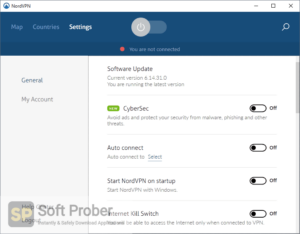

Browsing-specific information: This information gives your provider insight into your complete browsing history.This can help them determine your location, as well as your internet provider. IP address information: Some VPN providers also collect the IP address from which you log in to their service.It includes the exact times and dates you log in and out of the service, the volume of incoming and outgoing traffic, and the duration of each of your sessions.

Usage– specific information: This data shows the provider how you use their service.It includes the address of the VPN server you use, the version of the app you have installed, and your operating system. VPN-specific information: This is the basic data that shows your VPN provider who uses their service without revealing any sensitive information.All the information they may collect can be organized into the following four categories: The type and amount of information collected vary from provider to provider. Most of them do so to improve the performance of their servers, optimize their service, and prevent its illegal use. VPN providers collect user data for a variety of reasons. This information is kept in online records commonly referred to as logs. Since you’re using a VPN to ensure optimal privacy online, you probably wouldn’t expect your provider to store any information about your activity. What is a logging policy and why does it matter? Read on to learn more about each of these aspects, discover why they are important, and find out how NordVPN performed. The tests we run cover seven different aspects of privacy and security. What privacy and security elements do we test for? Make sure to install it and use it in combination with the main VPN app. By installing NordVPN’s browser extension for Chrome or Firefox, you can fix this. The Bad: AV-Test, an antivirus testing organisation, discovered a WebRTC leak (which leaks your home IP address) when using some of NordVPN’s servers. Finally, by being incorporated in Panama, it is outside of the reach of the data retention laws and intelligence agencies of the US and EU. On top of that, it uses the best VPN protocol (OpenVPN), top-of-the-line (AES-256) encryption, its own DNS servers and a kill switch to keep your data secure. The Good: NordVPN does not monitor and store your online activity.


 0 kommentar(er)
0 kommentar(er)
